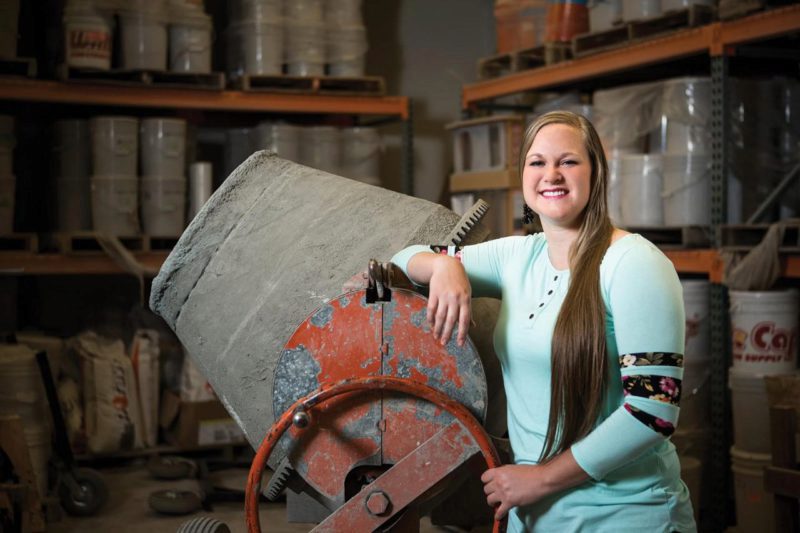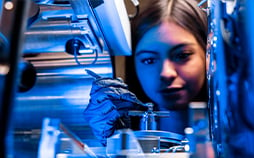Learning and Serving
Samantha Lau started a club for women in civil engineering. “Women have a different way of thinking about things—our group offers support,” she says.
October 2016

Tenli Waters always favored math over other subjects, so when the time came to decide which road to take in college, she chose civil engineering. Then, impressed by Professor Spencer Guthrie’s enthusiasm for improving roads and bridges, Waters joined his research team and has been mentored by him for more than six years.
Roads and pavement may not light up everyone’s eyes, but they changed Waters’s perspective. “Working on research with and learning from Dr. Guthrie, I was able to see real-world problems and how they are solved with engineering,” Waters says. “Working with Dr. Guthrie helped me see the big picture.”
Waters has spent more than 2,000 hours doing research over the course of her college career. Along the way she received three grants from the Office of Research and Creative Activities (ORCA), she gave multiple presentations at international conferences, and she wrote three technical papers that were published.
Guthrie says of Waters, “She has been a key player in significant bridge and pavement research performed by my group. Her leadership, organizational skills, and technical expertise are clearly evident in the field and in the laboratory.”
Waters has completed bachelor’s and master’s degrees in civil engineering at BYU, and she is now pursuing a third BYU degree: a PhD in civil engineering.
Related story: https://www.et.byu.edu/college-news/going-distance-webyu-research-mentorship-spurs-student-higher-degrees

Samantha Lau started a club for women in civil engineering. “Women have a different way of thinking about things—our group offers support,” she says.

Donations helped Michelle Arias see possibilities she’d never imagined before.

Sierra Leone’s civil war left behind more than 27,000 amputees. Recent BYU students created an adjustable and affordable prosthetic socket for the veterans.